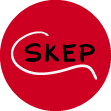The Educational Program "Focus on the Person" in Action: Observation in the School Context
In collaboration with the National and Kapodistrian University of Athens, Department of Psychology
During the school year 2017-2018, SKEP evaluated the impact of the "Focus on the Person" educational program on students, by making a qualitative analysis through:
- Ongoing cooperation and feedback by the teachers participating in the program
- Feedback by the students, always in collaboration with the school
- Collection and processing of data in collaboration with Professor Frosso Motti-Stefanidi, Ph.D, Department of Psychology, National and Kapodistrian University of Athens
The Educational Program took place inside the school and during teaching hours. It was designed based on the age groups of students and thus the different approach and information needs that arise.
Specifically, the Qualitative Analysis was implemented in Primary and Secondary Schools in the wider region of Attica.
Specifically:
- 14 schools: 7 Primary and 7 Secondary Education
- 340 students: 173 Primary and 167 Secondary School students
- 166 boys and 174 girls
The qualitative analysis was designed to capture the influence of the program on Primary and Secondary Education students. Through observation and recording of emotions in the familiar environment of the classroom, of the students and the teachers who attended, conclusions were drawn that outlined the impact of the educational program.
The conclusions were presented by the Professor of the Department of Psychology, National and Kapodistrian University of Athens, Mrs Frosso Motti-Stephanidi, at the 1st Interactive Conference on "Fostering Respect and Acceptance of Diversity in Schools" - Educational Approaches for the Social Inclusion of Young People with Disability, organized by "Marianna V. Vardinoyannis" Foundation and SKEP, on Friday 30 November 2018, in Zappeion, in Athens.
In conclusion, it appears that SKEP's Educational Program:
- Raised awareness amongst children's thoughts and feelings regarding disability: Children expressed more positive than negative feelings about this experience and realized through social comparison that people with disability have needs, difficulties and abilities like the rest of the world.
- Helped understand the daily barriers faced by people with disability as well as to realize their potential: Children emphasized in the speaker's mental resilience*
- Contributed to the review and change of attitudes, perceptions, feelings about disability in a significant percentage of children
*An important role in this process was played by the personality of the speaker who made the intervention: The children were impressed by the openness of the speaker with regard to his or her disability, character and mental resilience.
SKEP's educational program seems to contribute on familiarizing students with the reality of disability. This intervention may be the trigger for creating a school as a framework of equal opportunities and inclusion in a community. A school that promotes empathy, dialogue, coexistence, acceptance, solidarity and respect for the uniqueness of everyone.
Qualitative Analysis of The Educational Program "Focus on the Person"
1. Deconstruct stereotypes of prejudice about disability through the awakening of the general population and the reshaping of attitudes
2. Incorporating / integrating people with disabilities into everyday life, aiming towards their social inclusion
At the same time, the Educational Program contributes towards students’ psycho-social development, enabling them to view both society & themselves in a different way / perspective.
1. By hearing about true accounts of people managing to defeat personal adversities, children improve their self-confidence and trust in themselves, while enhancing their ability to overcome obstacles.
2. By interacting with diversity, they develop empathy and a sense of right and wrong, helping them to become a beacon of change within the community.
Apart from familiarizing students with disability, the program offers the participants a life lesson by creating a new communication code, building relationships of understanding, respect and acceptance through the experiential process. Additionally it reinforces the notion of social inclusion, camaraderie and awareness, while simultaneously promoting trust in ourselves and others. Genuine feelings represent the most successful recipe for a life stance without restrictions, stereotypes and “limited” perceptions.
The programs are implemented by a Coordinator & one or two Speakers (with or without disability) & aimed at 1 or 2 classes, providing the number of participating students does not exceed 60. The duration of the speech is set at one or two teaching hours.

